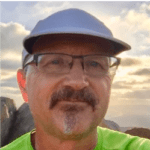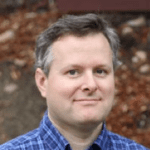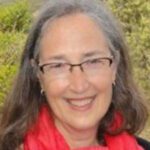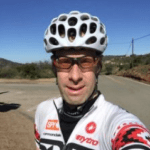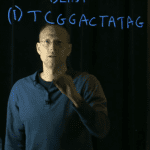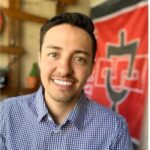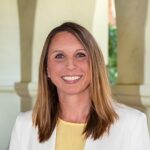Here you can learn more about the Center’s members, including their research interests and relevant publications.
More About Dr. Matt
Dr. Matt is a Professor of Psychology in the College of Sciences at San Diego State University and a participating member at the University of California San Diego Moores Cancer Center. Dr. Matt’s research focuses on human exposure to tobacco smoke toxicants in real-world field settings and on strategies to protect nonsmokers from the exposure to tobacco smoke toxicants from secondhand and thirdhand smoke.
Dr. Matt is the PI of the Thirdhand Smoke Dissemination, Outreach, and Resource Center (Thirdhand Smoke Resource Center) that will connect Thirdhand Smoke researchers with California’s diverse communities. The Thirdhand Smoke Resource Center (1) established a web-based platform to share Thirdhand Smoke information and outcomes from consortium-supported research with California residents, communities, tobacco groups, and business owners (Aim 1); (2) raises awareness among California residents through social media campaign; (3) shares what we know about Thirdhand Smoke with community groups, health professional, and relevant tobacco control stakeholder groups through a series of online workshops; and (4) engages community groups, health professionals, and business owners about adopt policies related to Thirdhand Smoke.
When Dr. Matt is not busy with his research and teaching, you can find him in San Diego’s backcountry trail-running and birding, in the backyard raising heirloom tomatoes and orchids, in the kitchen baking bread, or at an Aztecs basketball game.
An up-to-date list of his publications can be found on Google Scholar.
More About Dr. Novotny
Dr. Novotny is an Emeritus Professor of Epidemiology and Biostatistics in the Graduate School of Public Health at San Diego State University (SDSU). Previously, he was Professor of Global Health and Co-Director of the Joint PhD Program in Global Health at SDSU and UC San Diego. He was Deputy Assistant Secretary for Health (DHHS) in 2015-17, where he was involved in federal programs on tobacco control and public health. He has been a contributor to and editor of several Reports of the US Surgeon General on Tobacco and Health.
Dr. Novotny’s research has most recently focused on the environmental impact of tobacco use, and he initiated and guided the production of a WHO Overview on the life cycle impacts of tobacco on the environment. He also founded the Cigarette Butt Pollution Project, a 501c3 charity registered in California, which involves several multi-sectoral collaborative partnerships. He has conducted extensive policy research, advocacy, and conceptual work in this area for over a decade. These activities included work with SDSU and UC researchers on the environmental exposures resulting from tobacco product waste. He has conducted successful dissemination activities with the Truth Initiative in Washington, DC, the California Tobacco Control Program, and other tobacco control advocacy groups.
An up-to-date list of his publications can be found on Google Scholar.
More About Dr. Cheng
Kai-Chung Cheng is an Assistant Professor in the School of Public Health and in Imperial Valley at San Diego State University. He has also worked as a Research Engineer at Stanford University and a Research Scientist at California Department of Public Health, with more than 10 years of experience in measuring and assessing air pollution and human exposure. He led a cohort study that evaluated the effect of air purifier on indoor PM2.5 and asthma in children for low-income families in Fresno, CA. He investigated 36 Indian casinos in California to assess, in the field, the impacts of indoor smoking on involuntary tobacco smoke exposure. He recently took the lead on a project that evaluated secondhand exposure to marijuana smoke; it systematically examined exposure close to smokers, offering insight into recommended safe distances from cannabis smoking. His expertise also involves technology development. Using indoor positioning, he created a mobile mapping method to track time-varying locations and exposures of occupants inside buildings. He developed a machine learning method to differentiate smoking from other indoor particle emissions, such as cooking and household cleaning.
An up-to-date list of his publications can be found on Google Scholar.
More About Dr. Dodder
Dr. Dodder works in the San Diego State University School of Public Health Environmental Health Laboratory. An analytical chemist specializing in applications related to environmental and public health, his expertise includes:
1) Analytical method development for the quantification of contaminants, metabolites, and protein biomarkers by chromatography/mass spectrometry
2) Non-targeted mass spectrometry for the identification of unexpected environmental contaminants
3) Environmental survey design to assess the occurrence and fate of contaminants in abiotic and biotic matrices
4) Implementation of quality assurance/quality control procedures for chemical analyses
5) Scientific software development, including tools for mass spectral interpretation and mass spectral libraries, automated quality control validation, and data analysis and visualization.
Dr. Dodder is a Co-Investigator of a couple of MERG projects. In these projects, he leads method development for qualitative and quantitative chemical analyses, with responsibility for QA/QC, laboratory maintenance, and training and supervision of laboratory technicians and student lab assistants.
An up-to-date list of his publications can be found on Google Scholar.
More About Dr. Elkin
Dr. Elkin is an assistant professor of Environmental Health at San Diego State University. She is a toxicologist specializing in reproductive and placental toxicology. Her research seeks to understand how exposures to environmental and occupational pollutants during pregnancy contribute to elevated risk of developing adverse birth outcomes. Dr. Elkin is new to the Consortium and was recently awarded a pilot grant by the Consortium to investigate the toxic effects of third-hand smoke dust on placental cells. She is an avid genealogist in her spare time.
An up-to-date list of her publications can be found on NCBI.
More About Dr. Gibbons
Dr. Gibbons is a demographer with expertise in spatial analysis and neighborhood studies.
An up-to-date list of his publications can be found on Google Scholar.
More About Dr. Stigler Granados
Dr. Stigler Granados is an Assistant Professor in the School of Public Health – Environmental Health and Global Health. Her main areas of interest include global health, public health policy, environmental health, tobacco product waste, and neglected tropical diseases. She received her MS degree in Environmental Health Sciences at San Diego State University and her PhD in Global Health in the joint doctoral program with the University of California, San Diego and San Diego State University. Some of her interests include Chagas disease, environmental exposure risks for vulnerable populations, socio-economic determinants of health, geo-spatial analysis of environmental hazards, climate change and community based participatory research. She has worked throughout Latin America and the United States with indigenous and rural populations on a multitude of projects addressing public health. Dr. Stigler Granados has several on-going research projects, including a Center for Disease Control and Prevention funded project to raise awareness among healthcare providers in the U.S. about Chagas disease. She is also utilizing the ECHO model of tele-mentoring to provide learning opportunities for physicians regarding Chagas disease. Dr. Stigler Granados also leads a Department of Defense Global Health Initiative grant to conduct surveillance of Chagas disease in military communities along the U.S. Mexico border region. She is an advocate for community-led projects and has a deep commitment to multi-disciplinary collaborations to solve important public health issues.
An up-to-date list of her publications can be found on Google Scholar.
More About Dr. Greiner
Dr. Greiner uses community-based research approaches to examine the relationships between man-made environmental hazards and health outcomes. Dr. Greiner is the Coordinator for the Thirdhand Smoke Resource Center. In this role, she is responsible for the day-to-day operations of the Center. With more than twenty years of experience in community-based health promotion, she collaborates with other members of the Center Team, thirdhand smoke researchers, and community stakeholders in the outreach and dissemination efforts of the Center.
More About Dr. Harrison
Dr. Harrison’s research centers on the application of chromatographic techniques, principally capillary electrophoresis, for bioanalysis. This ranges from developing coatings and approaches for the separation of proteins and small molecules, to the application of capillary electrophoresis in detecting blood doping agents in athletes.
Dr. Harrison is a co-Investigator of a MERG project measuring and reducing exposure to thirdhand smoke. His role in the project is to develop and test a simple, field-deployable, device capable of performing semi-quantitative analysis of thirdhand smoke residue. The aim is to provide the public with a tool that can be used by anyone (like a pool chlorination test kit) to get an approximation of the amount of thirdhand smoke residue present in their living spaces.
An up-to-date list of his publications can be found on Google Scholar.
More About Dr. Hoh
Dr. Hoh’s research interests have focused on fate and behaviors of persistent organic contaminants in the environment and their impact on human health. Her current research projects focus on the ocean and human health, exposure to tobacco smoke residue (thirdhand smoke), microplastic pollution, tobacco product waste, and wastewater treatment.
Dr. Hoh is the Co-Principal Investigator (Co-PI) a Co-Investigator of a few tobacco projects funded by the Tobacco-related Disease Research Program, including the Thirdhand Smoke Resource Center. She has developed novel analytical methods which included fast and efficient analyses of multiple classes of targeted chemical residues, and a nontargeted analytical approach for organic contaminants of interest in various types of environmental and biological samples. She leads chemical analyses required for identifying chemicals of concern in thirdhand smoke and evaluating removal of them as well as contributing expertise on analyses of environmental samples and the design and interpretation of all lab analyses.
An up-to-date list of her publications can be found on Google Scholar.
More About Dr. Hovell
Dr. Hovell’s research focuses on the etiology of health-related behavior following the Behavioral Ecological Model, including studies of classic risk practices, such as diet and physical activity, as well as studies of clinicians’ service delivery. His research also addresses means by which the influence of and change in culture can be achieved to establish healthy practices in whole populations. His work investigation of secondhand smoke exposure reduction for children led to him, along with Dr. Georg Matt, to “discover” thirdhand smoke when he explored nicotine in homes as an explanation of variance in secondhand smoke exposure.
He is a Co-Investigator of the Thirdhand Smoke Resource Center. In this role he will contribute to the translation of thirdhand smoke research findings to real-world settings to disseminate findings and improve public health.
An up-to-date list of his publications can be found on Google Scholar.
More About Dr. Kelley
Dr. Kelley is a Professor of Biology at San Diego State University, where he has worked since 2002. His lab combines phylogenetic methods and culture-independent molecular tools to study environmental microbiology. Dr. Kelley has published extensively on the Human Microbiome, the microbiome of the Built Environment and on the microbial diversity of many natural environments, including volcanic steam vents, corals and elephants. He has also published dozens of papers on bioinformatics, developed some widely used tools for analyzing microbial communities using next-generation sequencing, and authored Computational Biology: A Hypertextbook, an introductory textbook on Bioinformatics.
Dr. Kelley was a Co-Investigator on the “Effects of Thirdhand Smoke Exposure on the Microbiome of Young Children (Matt)” project. In this project, he led the molecular and bioinformatics analysis of human and built environment microbial communities.
An up-to-date list of his publications can be found on Google Scholar.
More About Dr. Klepeis
Dr. Klepeis is an Adjunct Associate Professor at San Diego State University. He works in the fields of Environmental Health and Exposure Science developing digital solutions for exposure education and the promotion of exposure-mitigating policies.
Dr. Klepeis is currently working on several research projects that seek to engage tribes, youth, and other priority populations in Citizen Science and Environmental Health Literacy related to secondhand and thirdhand smoke. These include a project to support California tribes in learning about exposure, a Serious Game for middle-school curricula that meets Next Generation Science Standards, and a personal exposure monitoring toolkit that includes a custom mobile app and a real-time air quality sensor. Key exposure settings for Dr. Klepeis’ work include multi-unit housing, outdoors, and casinos.
Dr. Klepeis loves to hike, camp, and play rock and roll music on his guitar.
An up-to-date list of his publications can be found on Google Scholar.
More About Dr. Lee
Dr. Lee is a Professor of Economics at San Diego State University. His research focuses on applied microeconomics, including public/urban economics, labor economics, environmental economics, and risk and uncertainty.
An up-to-date list of his publications can be found on Google Scholar.
More About Dr. Lopez-Galvez
Dr. Lopez-Galvez is an Assistant Professor in Environmental Health at the School of Public Health. He has over a decade of experience evaluating environmental exposures to carcinogens such as pesticides and tobacco-related pollutants among underserved populations, including low-wage immigrant workers, farm workers, children, and those who live near the U.S.-Mexico border region. He utilizes innovative and non-invasive exposure assessment tools in field studies to monitor carcinogens in occupational and community-based settings to better understand their effects on human health. His experience as first-generation Latino immigrant in the U.S. has influenced his commitment towards addressing environmental justice issues and health disparities in minority populations. He received his Bachelor’s degree in Biology from the University of California, Los Angeles (UCLA), his Masters in Public Health in Environmental Health and Masters of Arts in Latin American Studies at SDSU. Dr. Lopez-Galvez obtained his PhD from the University of Arizona with a focus in Environmental and Occupational Health.
An up-to-date list of his publications can be found on Google Scholar.
More About Dr. Nogueira
Dr. Nogueira is an Assistant Professor at the School of Exercise and Nutritional Sciences, College of Health and Human Services, San Diego State University. Dr. Nogueira’s research is focused on how chronic inflammatory diseases, environmental pollutants (e.g., tobacco smoke), and acute and chronic hypoxia interfere with locomotor and respiratory muscle physiology and repair. For this Dr. Nogueira uses several approaches in vivo, in situ and ex vivo to investigate muscle contractile function, fatigue resistance, and exercise-induced muscle regeneration in several different animal models.
An up-to-date list of his publications can be found on Google Scholar.
More About Dr. Quintana
Dr. Quintana has a research focus on environmental justice in relation to exposures to children and vulnerable populations at the US-Mexico border. She studies children’s exposure to toxicants in house dust and on surfaces, such as residual tobacco toxicants remaining after smoking has taken place, known as thirdhand smoke. She applies emerging technologies to assess environmental health problems, such as silicone wristbands for measuring carcinogen exposures in children from thirdhand smoke, and low-cost air sensors deployed in Tijuana at sensitive receptor sites. She studies air pollution arising from the long northbound wait times and lines of idling vehicles at US-Mexico Ports of Entry, exposing border crossers and surrounding communities to traffic pollutants. She is a Scientific Guidance Panel member for the California Environmental Contaminant Biomonitoring Program.
An up-to-date list of her publications can be found on Google Scholar.
More About Dr. Record
Dr. Record is an Associate Professor of Communication in the College of Professional Studies & Fine Arts at San Diego State University and a Core Researcher with the Center for Communication, Health, & the Public Good. Dr. Record’s research, typically grounded in behavior change theories, employs mixed methods to examine campaign and intervention strategies to improve tobacco-related health behavior outcomes,
Dr. Record joined the Consortium in Fall 2017. She is a Co-I of the Third Hand Smoke Resource Center, funded through the Tobacco-related Disease Research Program. Her role in the center is to assist with the Center’s online footprint and oversee campaign strategies, including design, implementation, and evaluation.
When Dr. Record is not busy with research and teaching, you can find her with her husband and two dogs exploring San Diego’s communities, beaches, and mountains.
An up-to-date list of her publications can be found on PubMed.
More About Dr. Sant
Dr. Sant is an Associate Professor of Environmental Health within the San Diego State University School of Public Health. Kari is a toxicologist who specializes in the health consequences resulting from developmental exposures to common water pollutants. Most of her research has examined how exposures to endocrine disrupting chemicals (EDCs) affect embryonic and juvenile development. She currently uses the zebrafish model to investigate how emerging surface and drinking water contaminants influence both human and marine reproduction and health throughout the lifespan. Kari currently is working in several projects related to environmental tobacco, assessing the aquatic toxicity of cigarette butt and vaping product wastes in aquatic habitats. Kari received her B.S. in Biology and Environmental Science from the University of Michigan. She also received a Master of Public Health degree in Environmental Health and a Ph.D. in Toxicology from the University of Michigan.
An up-to-date list of her publications can be found on Google Scholar.
More About Dr. Shadbegian
Dr. Shadbegian is an Economics Professor at San Diego State University (SDSU). Previously he was a Senior Research Economist at the U.S. EPA’s National Center for Environmental Economics (NCEE). He also served on President Obama’s Council of Economic Advisers as Senior Economist for Environment and Energy (2013-2014) and was also an Adjunct Professor in Georgetown University’s Economics Department and McCourt School of Public Policy. Prior to NCEE, Dr. Shadbegian earned the rank of Professor in the Economics Department at UMass Dartmouth. Currently his research focuses on the four main areas: 1) estimating the effects of early childhood lead exposure on children’s health, educational, and labor market outcomes; 2) estimating the economic costs of tobacco product waste litter; 3) estimating the effect of air pollution on children and elderly’s health and cognitive abilities; and 4) the impact of environmental regulations on environmental justice, electricity prices, employment, productivity, environmental performance, investment, and technological change.
An up-to-date list of his publications can be found on Google Scholar.
More about Dr. Ni
Dr. Ni is an Assistant Professor in the Division of Epidemiology and Biostatistics in the School of Public Health at San Diego State University. She is an environmental epidemiologist who has dedicated herself to understanding how key environmental exposures impact population health. She has a strong commitment in her work to 1) quantifying the impacts of air pollution exposures on varied maternal and child health outcomes, including pregnancy outcomes, child cardiometabolic health and neurodevelopment; 2) adopting an integrated approach to studying the interplay and totality of endocrine disrupting chemicals on child development; and 3) determining interactive effects of individual features, such as socioeconomic status and health behaviors, with environmental exposures, seeking to identify vulnerable subgroups.
An up-to-date list of her publications can be found on NCBI.

